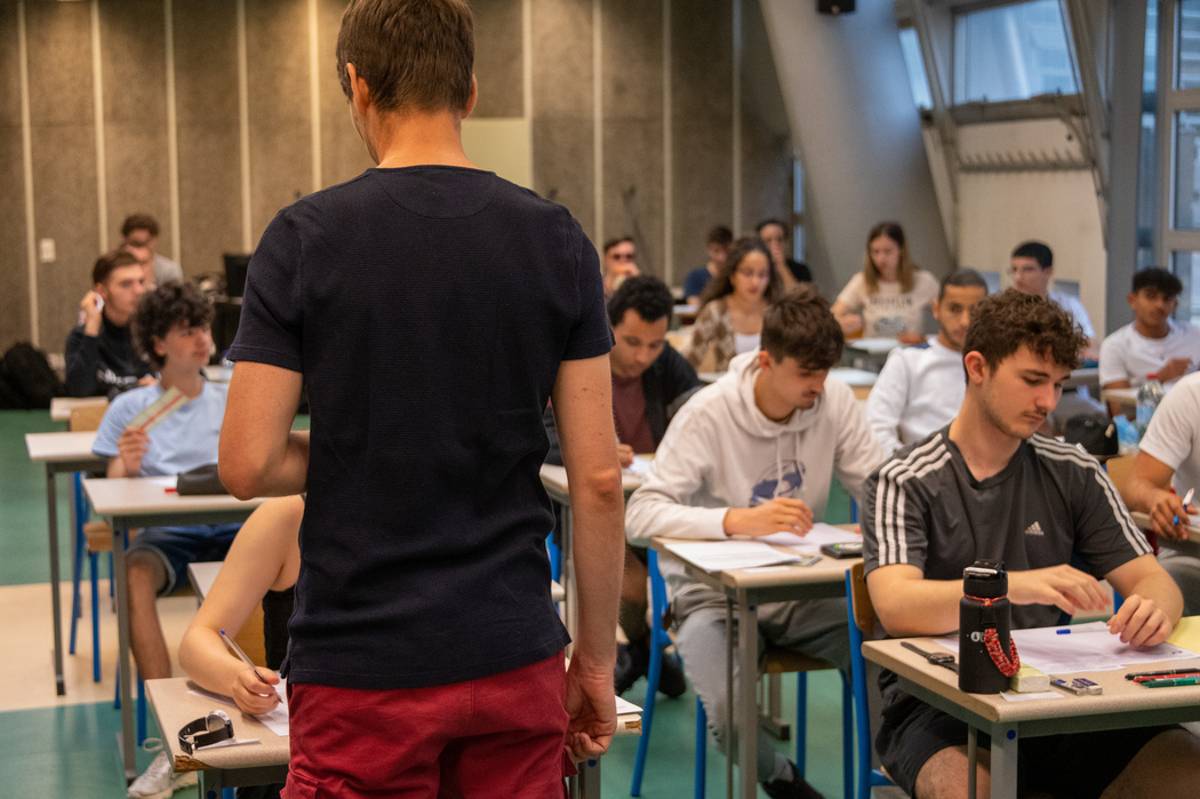The 2022 baccalaureate philosophy test takes place this Wednesday morning.
General stream
Students in the general stream had the choice between two dissertation subjects either “Do artistic practices transform the world? » that is “Is it up to the state to decide what is right? ».
Or an explanation of Cournot’s text, taken from the “Essay on the foundations of our knowledge and on the characteristics of philosophical criticism” (1851).
“For an observation to be qualified as scientific, it must be
capable of being made and repeated under circumstances which involve an exact definition, so that at each repetition of the same circumstances we can always ascertain the identity of the results, at least within the limits of the error which inevitably affects our determinations empirical. It is necessary, moreover, that, under the circumstances defined, and between the limits of error which have just been indicated, the results should be independent of the constitution of the observer; or that, if there are exceptions, they are due to an anomaly of constitution, which manifestly renders such an individual unfit for such a kind of observation, without shaking our confidence in the constancy and in the intrinsic truth of the observed fact. But nothing similar is found in the conditions of inner observation on which one would like to found a scientific psychology; on the one hand, it is a question of fleeting phenomena, elusive in their perpetual metamorphoses and in their continuous modifications; on the other hand, these phenomena are essentially variable with the individuals in whom the role of observer and that of subject of observation merge; they change, often altogether, in consequence of the varieties of constitution which have the most mobility and inconsistency, the least characteristic value or importance in the general plan of the works of nature. What do I care about the discoveries that a philosopher has made or thinks he has made in the depths of his consciousness, if I don’t read the same thing in mine or if I read something completely different there? Can this be compared to the discoveries of an astronomer, a physicist, a naturalist who invites me to see what he has seen, to feel what he has felt, and who, if I don’t I don’t have a good enough eye or a delicate enough tact, will address so many other people better gifted than I am, and who will see or feel if
exactly the same thing, that I will have to surrender to the truth of an observation testified to by all those in whom the qualities of the witness are found? »
Advice from a teacher before the 2022 baccalaureate philosophy test
The test lasts 4 hours
Technological sector
The students had the choice between “Does freedom consist in obeying no one? » Where “Is it right to defend your rights by all means? »
The text explanation related to a text by Diderot taken from the Encyclopédie (1751-1772):
“If I could make sure that a witness saw well, and that he wanted to tell me the truth, his
testimony for me would become infallible: it is only in proportion to the degrees of
this double assurance that my persuasion increases; it will never rise to a full demonstration, as long as the testimony is unique, and I consider the witness in particular; because whatever knowledge I have of the human heart, I will never know it perfectly enough to guess its various caprices, and all the mysterious springs which make it move. But what I would look for in vain in a testimony, I find it in the concurrence of several testimonies, because humanity is painted there; I can, in consequence of the laws that minds follow, affirm that the single truth has been able to bring together so many people, whose interests are so diverse, and whose passions are so opposed. Error has different forms, according to the frame of mind of men, according to the prejudices of religion and education in which they are nourished: if then I see them, in spite of this prodigious variety of prejudices which differentiate nations so strongly, unite in the deposition of the same fact, I must in no way doubt its reality. The more you prove to me that the passions which govern men are bizarre, capricious, and unreasonable, the more eloquent you will be in exaggerating the
multiplicity of errors which so many different prejudices give rise to; and the more you
you will confirm, to your great astonishment, in the persuasion in which I am, that only the truth can make so many men of an opposite character speak in the same way. »

